
Once upon a time, many years before the age of doping and the extreme commercialization of sports, the award given by the ancient Greeks to the winners of the Olympic Games used to be an apple. After the 6th Olympic Games, however, ‘Kotinos’, the olive wreath, was established as a the winner’s award. Why did the olive prevail over the apple? What was so important about the olive trees, so that in Ancient Athens, uprooting or cutting them down was a crime punishable by death?
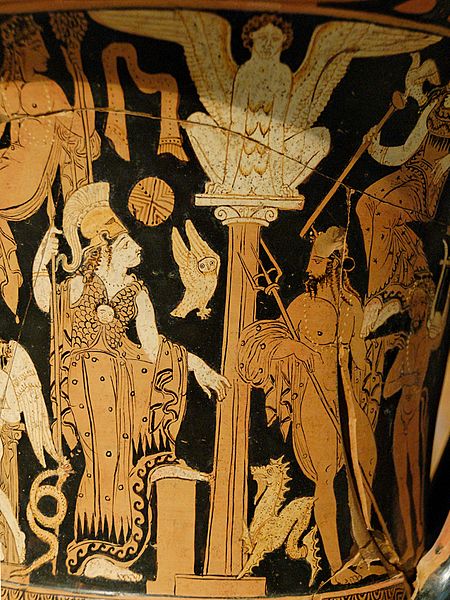
Nazzano Painter, The conflict between Athena and Poseidon, 360 BC Louvre museum
Ancient Greeks always had great respect for the olive tree -especially the Athenians. Athens itself -both its name and its location- seems to have been chosen because its founder, Kekropas, preferred the gift of Athena (an olive tree) and not that of Poseidon (a source of water). In those mythical years, not even a God could touch the olives: when Poseidon had his son Alirrothios avenge him by cutting the olive trees of Athens, the young man fell dead before his raised ax could even touch the first tree.
Today, when very few of us still believe in the existence of Poseidon or Athena, we can understand that the Athenians did not respect the olive tree because a Goddess imposed it on them. We can feel that the truth about the importance of the olive tree lies elsewhere, probably in what the philosopher Mircea Eliade wrote many years ago: “for the traditional societies, all the important acts of life were revealed ab origine by gods or heroes. Men only repeat these exemplary and paradigmatic gestures.” It seems, then, that the use of the olive tree must have been an “important act” for the Athenians, since they assimilated it into the founding myth of their city.
So important, that it, that it was not forgotten during the transition from the ancient to the modern world: it is on the Mount of Olives where Jesus the Nazarene rested, where he communicated with God. Over the centuries, the olive tree has never lost its glamor. Its value for survival, nutrition and daily life, gave it a great symbolic value. In folk art, it became a part of everyday objects, it was depicted in ceramics, and it became part of many proverbs and folk sayings.
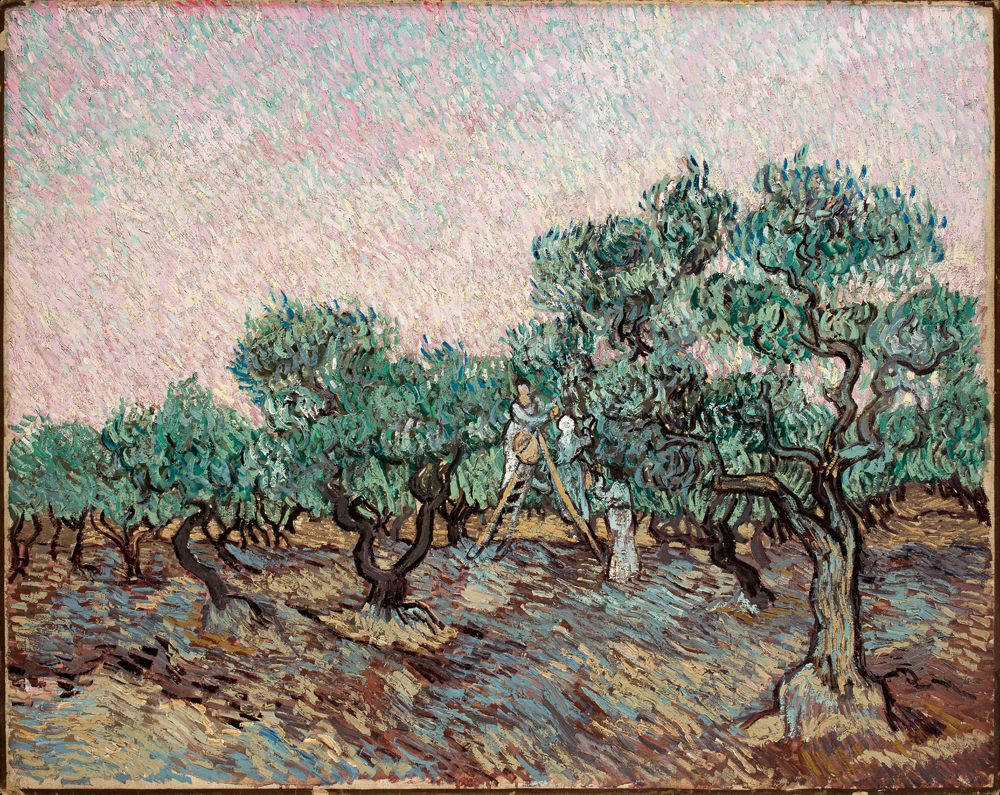
Vincent van Gogh (1853 – 1890), La cueillette des olives Η συγκομιδή της ελιάς, Ίδρυμα Ελίζας και Βασιλή Γουλανδρή
In recent years, alienation from land and urbanization have not severely damaged the prestige of the olive tree. A striking example is the series of 18 olive-themed paintings created by Vincent van Gogh – most of them in Saint-Rémy in 1889. More than one hundred years later, contemporary artists are still inspired by the olive tree.
It stands to reason, then, that we honor the olive tree. The people of the Mediterranean have created many olive and oil museums, in recent years. The Museums of the Olive in the Mediterranean network currently includes more than 15 museums throughout the Mediterranean Basin. Model institutions, such as Olivier Baussan’s Eco-museum in France, exhibit items related to olive production and at the same time carry out educational programs for students and nature excursions for adults.
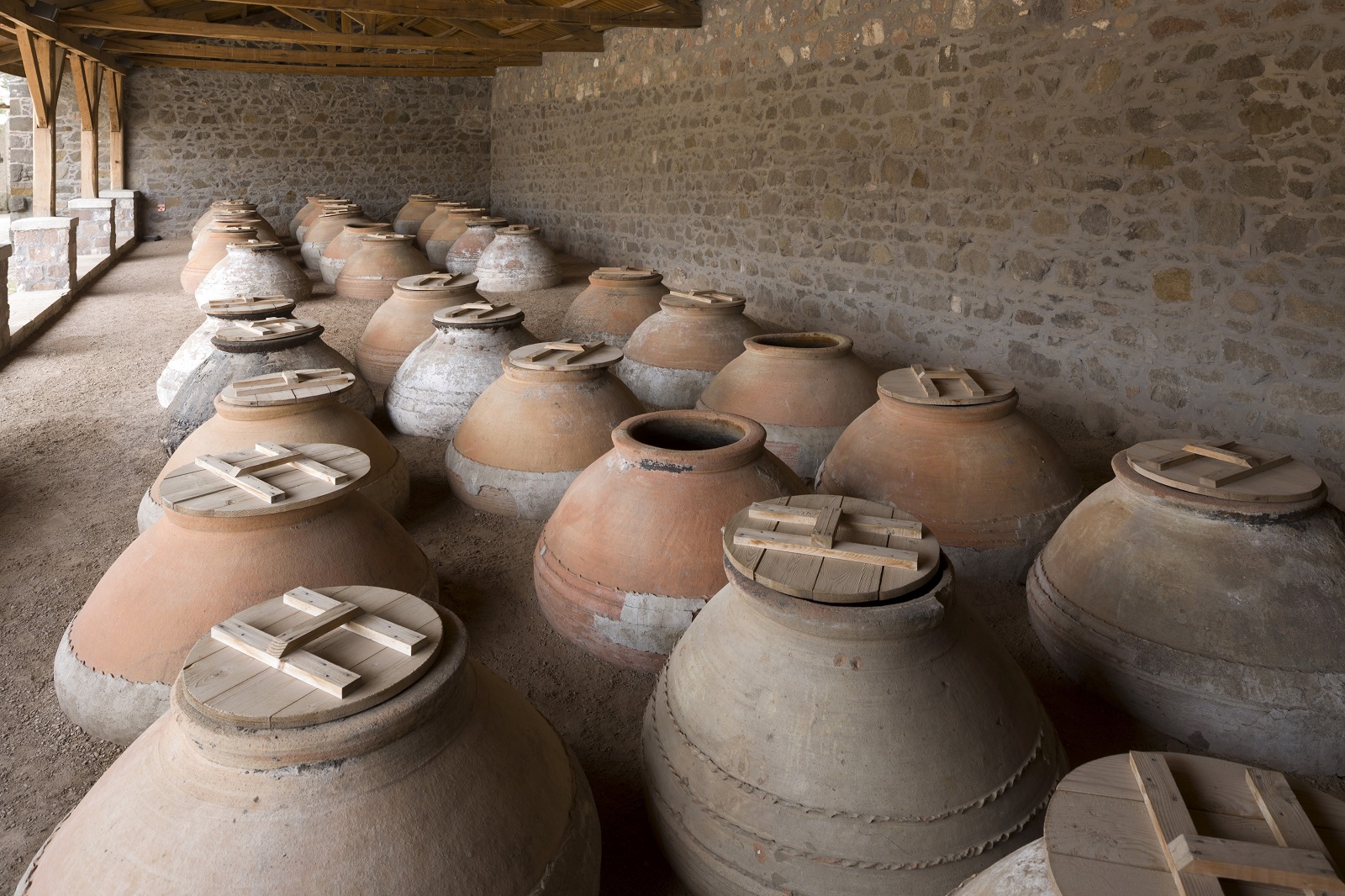
Μουσείο Βιομηχανικής Ελαιουργίας Λέσβου. Πολιτιστικό Ίδρυμα Ομίλου Πειραιώς The Museum of Industrial Olive – Oil Production of Lesvos. Piraeus Bank Group Cultural Foundation
Equally interesting efforts have been made in Greece as well. Today, many museums – private, public, municipal, folklore, traditional art, etc. – have incorporated the olive, in one way or another, in the material they exhibit and display to the public.
A great example of this are two exceptional olive museums: the Museum of Industrial Olive Oil in Lesvos and the Museum of the Olive and Greek Oil of the Piraeus Bank Group Cultural Foundation in Sparta.
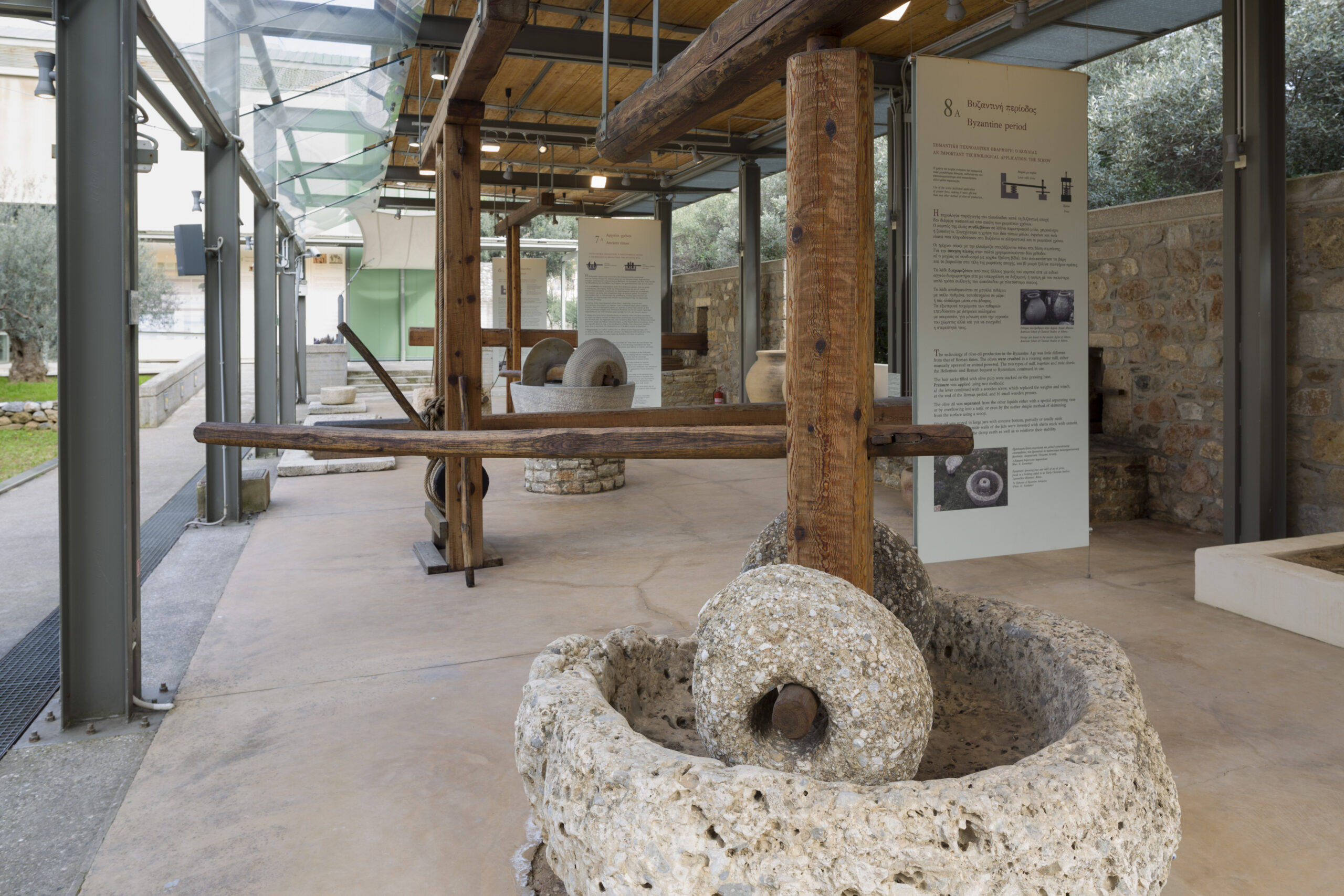
Μουσείο Ελιάς και Ελληνικού Λαδιού. Πολιτιστικό Ίδρυμα Ομίλου Πειραιώς / Museum of the Olive and Greek Olive Oil. Piraeus Bank Group Cultural Foundation
In this day and age, however, the olive tree has more than symbolic and museum value. In difficult times, there we return again. Nowadays, many of our fellow citizens have decided to take advantage of the unique quality of Greek olives and Greek olive oil, due to the special environmental, climatic and geographical conditions of our country, and to use new techniques based on old knowledge.
Giorgos Ioannou

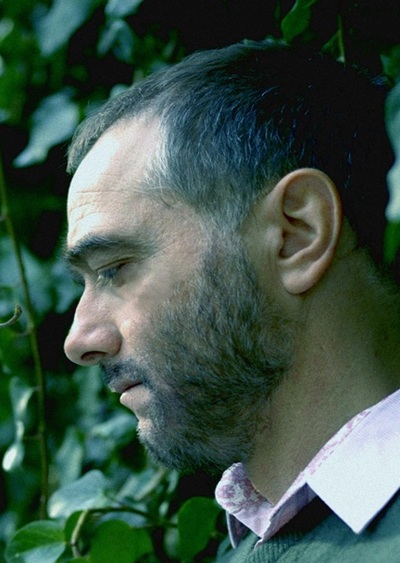





Leave A Comment